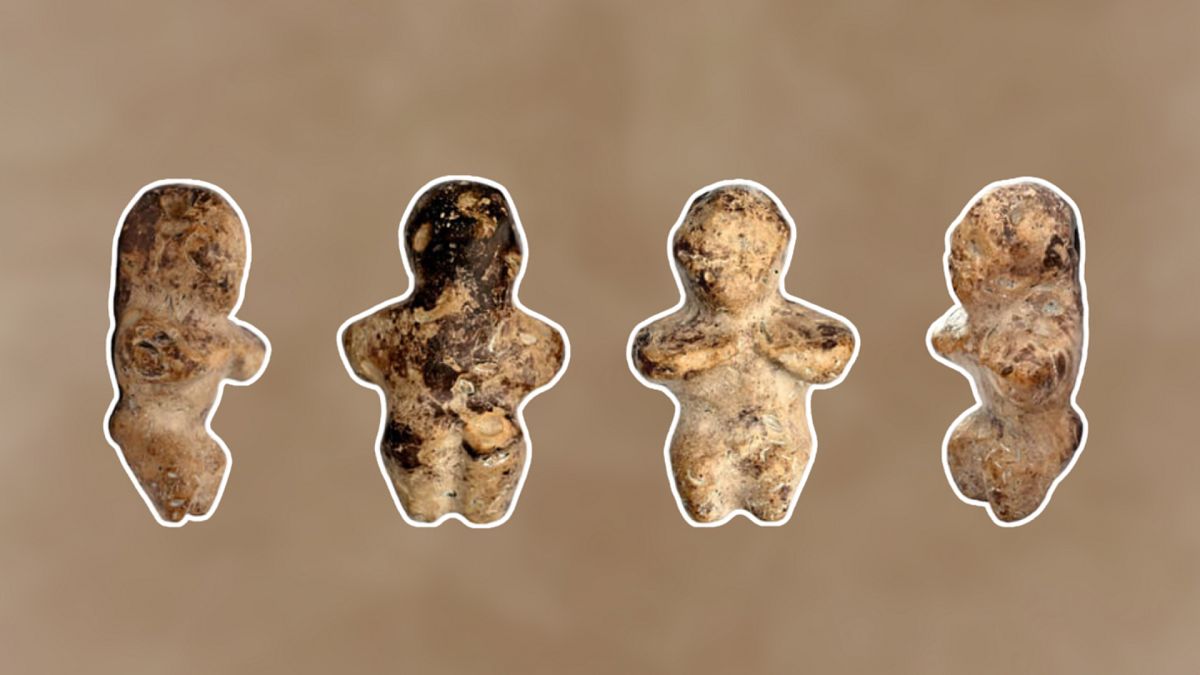

In recent weeks, two fascinating developments have captured attention across Europe: the discovery of an ancient artifact that promises to illuminate Poland’s early history, and a surge in demand for jobs in generative artificial intelligence, reflecting a technological shift in the workforce. These stories, though stemming from different realms, collectively highlight the continuous interplay between our human past and an evolving future.
In the serene landscapes of Pomerania, the discovery of a 6,000-year-old figurine, affectionately dubbed as ‘Kolobrzeg’s Venus’, has spurred excitement among archaeologists and historians. The figurine, standing a modest 12 centimeters tall and crafted from limestone, was uncovered in the Parsęta River. Despite its lack of distinct facial features such as eyes, a nose, or a mouth, this artifact is hailed as the ‘discovery of the century.’ Scholars anticipate that it could provide fresh insights into the Stone Age civilizations that once thrived in what is now modern-day Poland.
The significance of ‘Kolobrzeg’s Venus’ lies not only in its age but also in its context. Limestone artifacts from this period are rare in the region, making this discovery particularly special. The figurine’s simplistic design evokes curiosity about the artistic conventions and cultural symbolism of the era. Researchers suggest that such artifacts might have served ceremonial purposes or symbolized fertility, although much of this prehistoric story remains a mystery. The ongoing study of the figurine and its surroundings continues to unfold, inviting experts and enthusiasts alike to reflect on the rich tapestry of human history.
As Europe delves into its ancient past, it simultaneously navigates the frontiers of the future. In a notable trend, the demand for jobs related to generative artificial intelligence, or GenAI, has seen a significant increase across the continent. Countries such as Germany, the United Kingdom, and France lead the way in this technological surge. This growth in job postings underscores a robust interest in leveraging AI technologies to innovate and enhance various sectors.
GenAI, known for its capabilities in creating content and automating tasks, presents new opportunities and challenges in workplaces. While AI offers efficiencies, experts remind industries that human intelligence remains irreplaceable. The synergy between human intuition and AI’s analytical prowess is vital, as it fosters innovation while retaining ethical and creative decision-making processes. This balance is crucial in ensuring that technology serves as an empowering tool, rather than an overwhelming replacement.
Organizations are increasingly integrating AI to streamline operations and enhance productivity. From automating routine tasks to generating creative content, AI’s applications are vast and varied. Yet, as the technology permeates more industries, the role of human oversight becomes more pronounced. The need for skills in managing and deploying AI responsibly continues to rise, redefining positions and responsibilities within the workforce.
Throughout Europe, educational institutions and training programs are evolving to meet these demands. By equipping workers with the necessary skills, the aim is to ensure that the workforce remains adaptable and agile in this rapidly changing landscape. These initiatives reflect a broader commitment to sustaining economic growth while preserving the human element in technological advancement.
In both domains of archaeology and AI, Europe’s trajectory is one of exploration and adaptation. From unearthing relics that connect us to our ancestors, to embracing technologies that invite us into the future, there is a rich dialogue between where we’ve been and where we are headed. This harmonious balance of honoring our past while forging ahead with innovation encapsulates the spirit of progress, weaving a narrative of continuous discovery and evolution.
As we reflect on these stories, we are reminded of the enduring curiosity and resilience that lie at the heart of human endeavor. Whether through unearthing an ancient artifact or navigating new technological landscapes, the quest for knowledge and betterment remains a timeless pursuit.
Source: {link}
